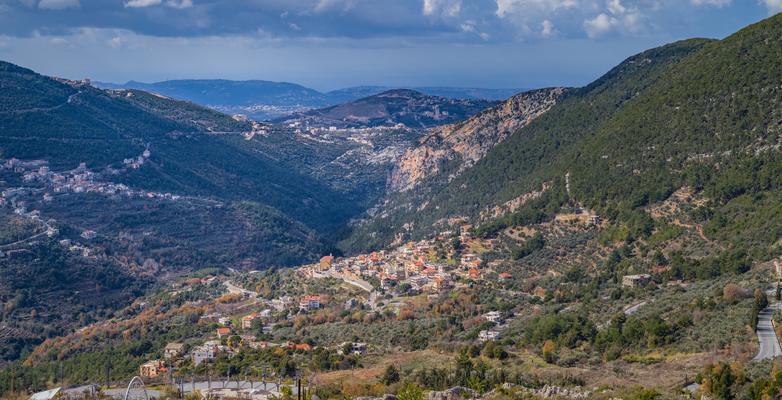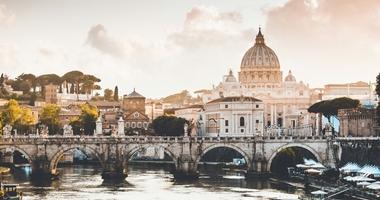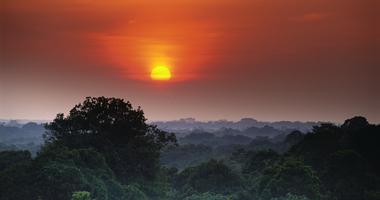
Protecting Lebanon’s Sacred Qadisha Valley
Rising temperatures, shifting rainfall patterns, and heightened frequency of extreme weather events pose significant threats to the valley's ecosystems.
3 min read
By Marwa El Houjairy, CEE Fellow
Nestled within the rugged mountains of Lebanon lies the awe-inspiring Qadisha Valley. This UNESCO World Heritage site embraces visitors with its mystical aura, where towering cedar trees and ancient monasteries stand in harmonious union. A sanctuary of natural beauty and profound spiritual significance, it’s also known as the “Holy Valley.”
The Qadisha Valley has been a refuge for monks and pilgrims for centuries, a veritable oasis amid a rugged landscape. However, as the impacts of climate change are increasing in frequency and intensity, the valley faces unprecedented challenges that jeopardize its delicate ecosystems.
The Qadisha Valley holds a special place in the hearts of many, not only for its breathtaking scenery but also for its rich religious heritage. Inhabited for centuries, with evidence of human presence dating back to prehistoric times, the area was likely home to various civilizations, including the Phoenicians, Romans, and Byzantines.
The valley is adorned with monasteries and hermitages dating back to the early Christian era nestled within its cliffs and caves. These sacred sites have served as havens for spiritual retreat and pilgrimage, where individuals seek solace and connection with the divine amidst the valley's pristine surroundings.
The Qadisha Valley stands as a testament to the enduring connection between spirituality, history, and nature in the region. Its monasteries, churches, and caves offer a glimpse into the lives of the ascetic communities that have inhabited the valley for centuries, making it a place of inspiration and reflection for people of various backgrounds.
But the Qadisha Valley is not shielded from the impacts of the climate crisis. Rising temperatures, shifting rainfall patterns, and heightened frequency of extreme weather events pose significant threats to the valley's ecosystems.
Diminished snowfall in the surrounding mountains disrupts the flow of water into the river of the Qadisha Valley, impacting its biodiversity and the livelihoods of those who rely on its resources. Moreover, the valley is vulnerable to heightened occurrences of landslides and erosion, further worsening the environmental degradation triggered by climate change.
The consequences for biodiversity and wildlife within the Qadisha Valley are profound.
Indigenous plant and animal species face habitat loss and fragmentation as their environments become increasingly inhospitable. Endemic species like the Lebanon cedar and the Persian fallow deer are particularly vulnerable to these changes.
In response to these existential threats, concerted efforts are underway in Lebanon to conserve and safeguard the land for future generations.
Local communities, conservation organizations, and religious institutions collaborate by implementing sustainable practices and raising awareness about the imperative of preserving this sacred landscape. Reforestation initiatives aim to rehabilitate degraded areas and mitigate soil erosion, while water conservation projects strive to ensure the sustained availability of water resources. Additionally, educational and outreach programs actively engage local communities and visitors in environmental stewardship efforts.
Faith also plays a pivotal role in the preservation of the Qadisha Valley.
For centuries, the valley has been revered as a place of spiritual significance, where individuals seek solace and communion with the divine. Religious traditions underscore the significance of stewardship and reverence for the natural world, advocating for living in harmony with the environment.
The Qadisha Valley serves as a testament to Lebanon's remarkable natural and cultural heritage.
Urgent action is imperative to mitigate the impacts of climate change and protect this cherished landscape for future generations. Through collective solidarity and proactive measures addressing the underlying causes of the climate crisis, we can ensure that the Qadisha Valley endures as a source of inspiration and spiritual renewal for centuries to come.




